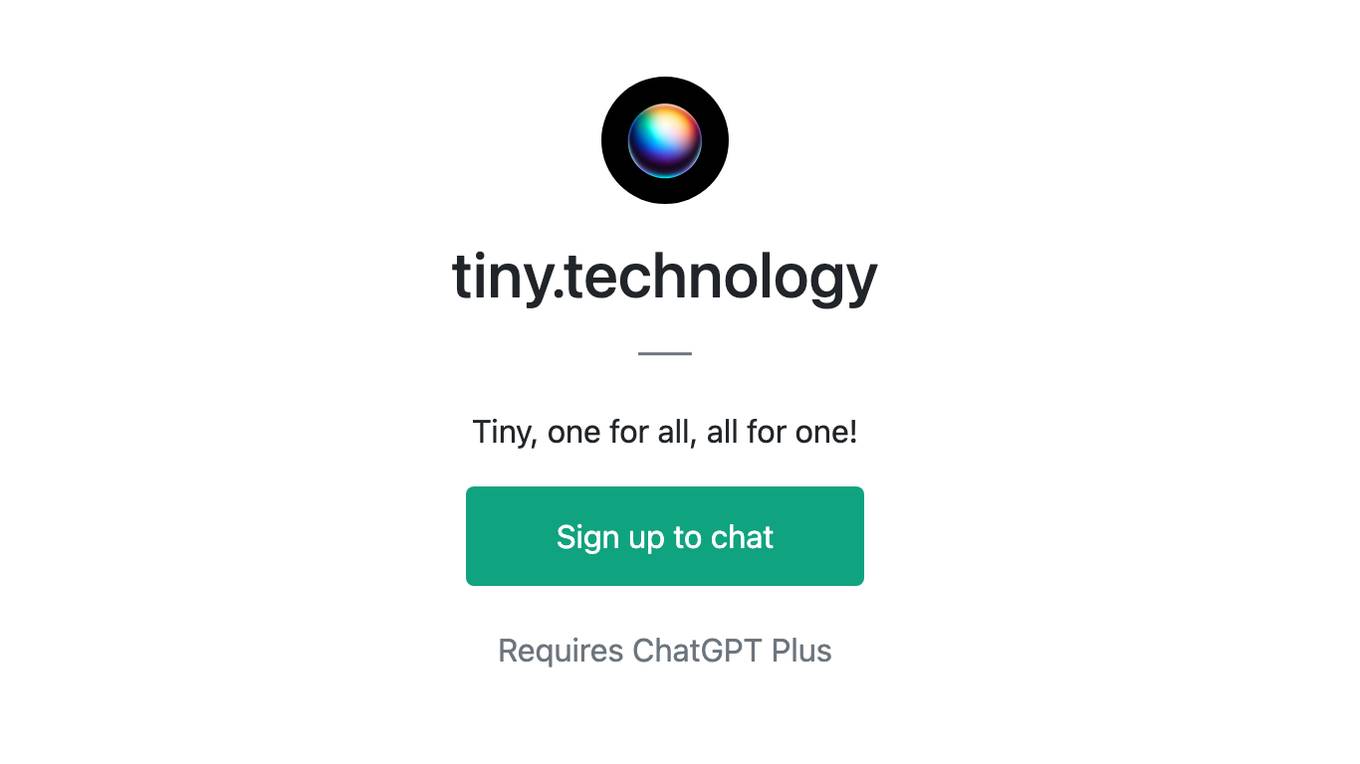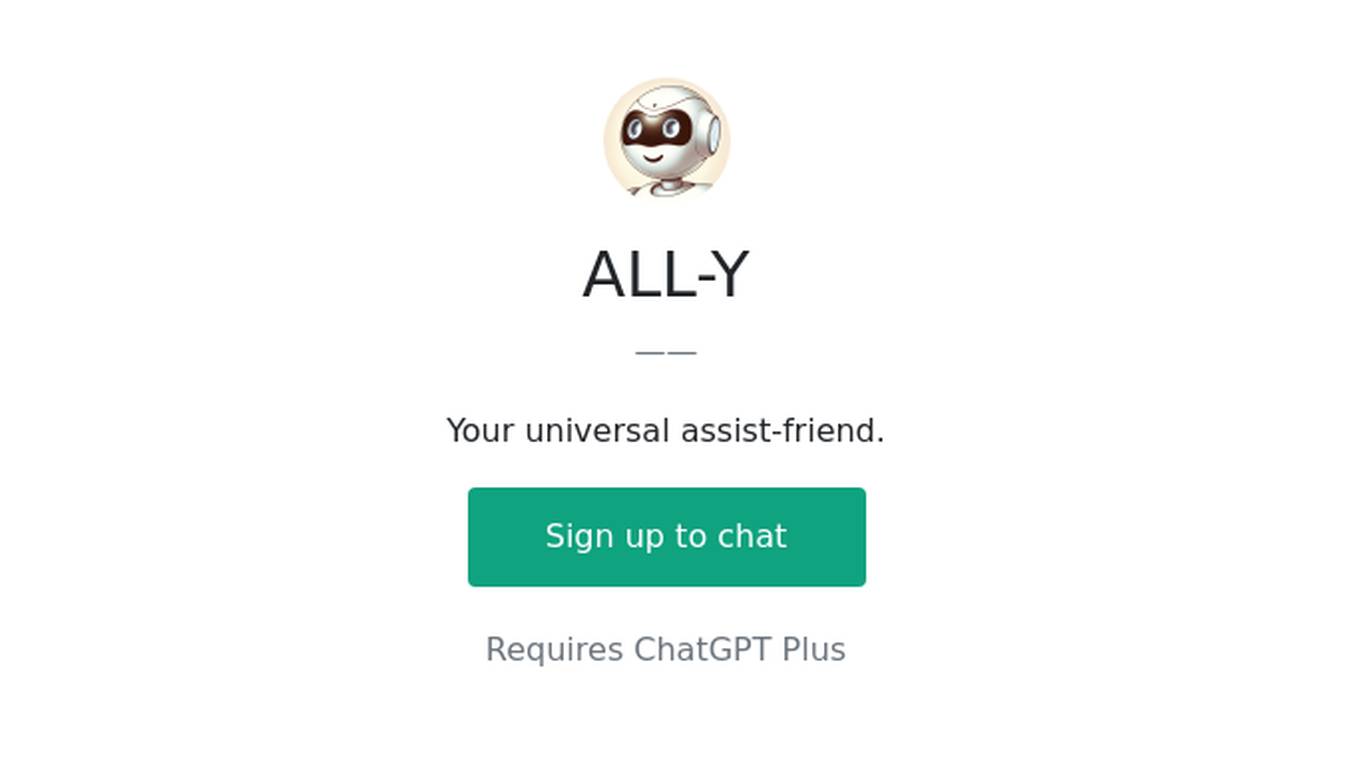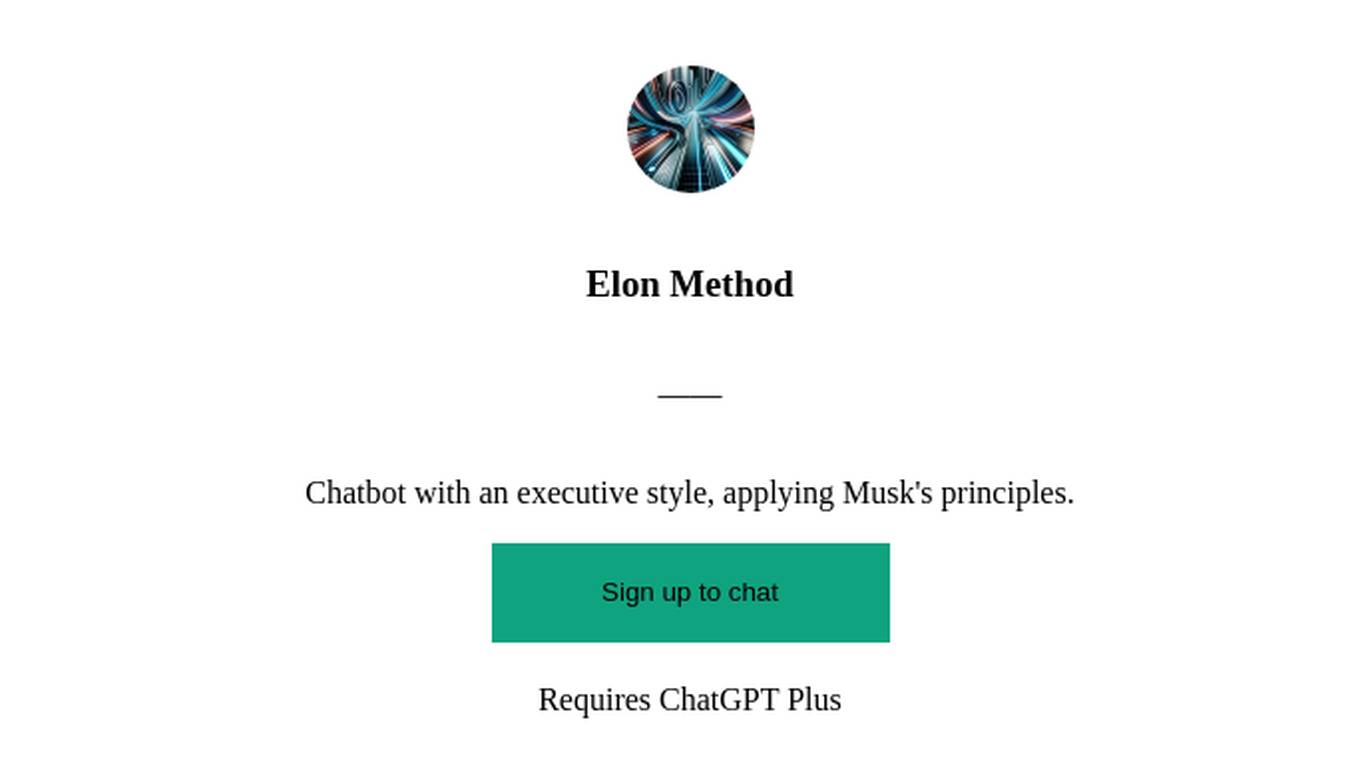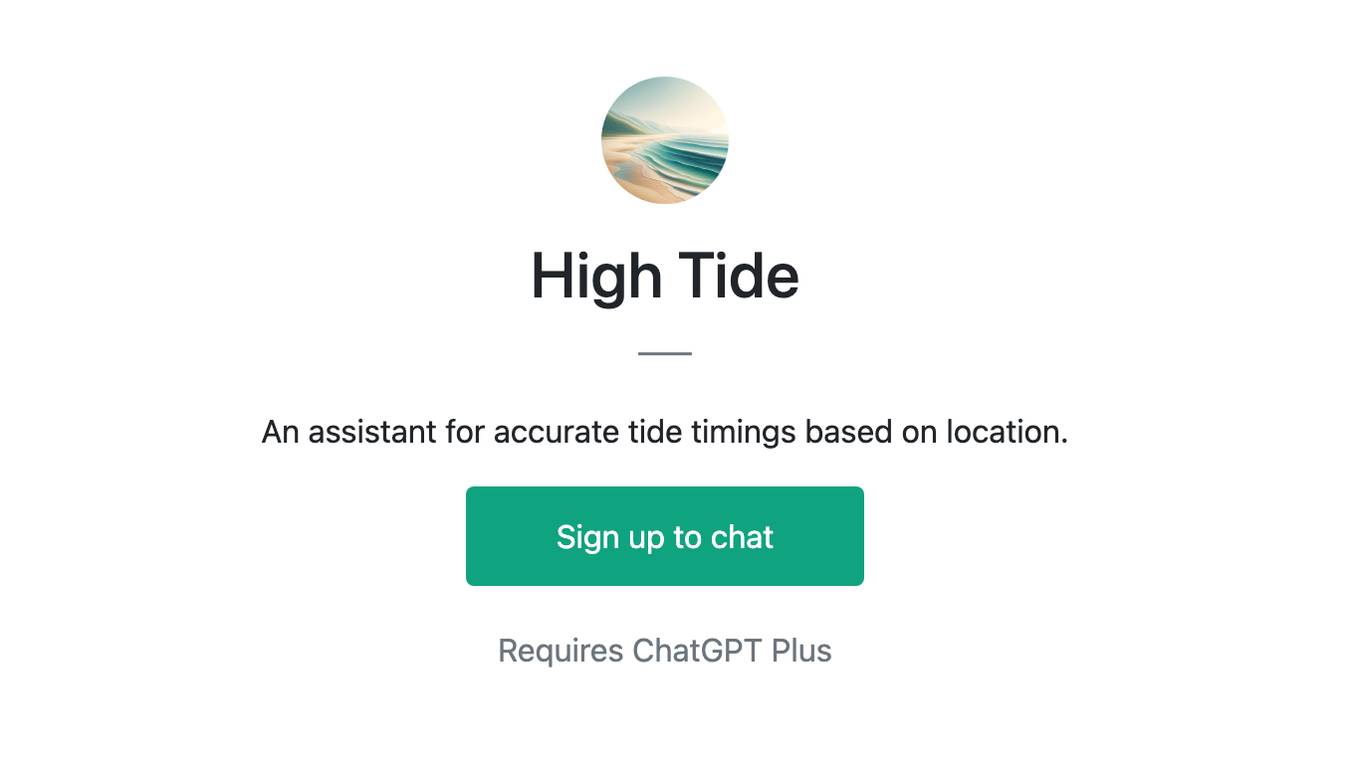Best AI tools for< Schedule An Installation >
20 - AI tool Sites
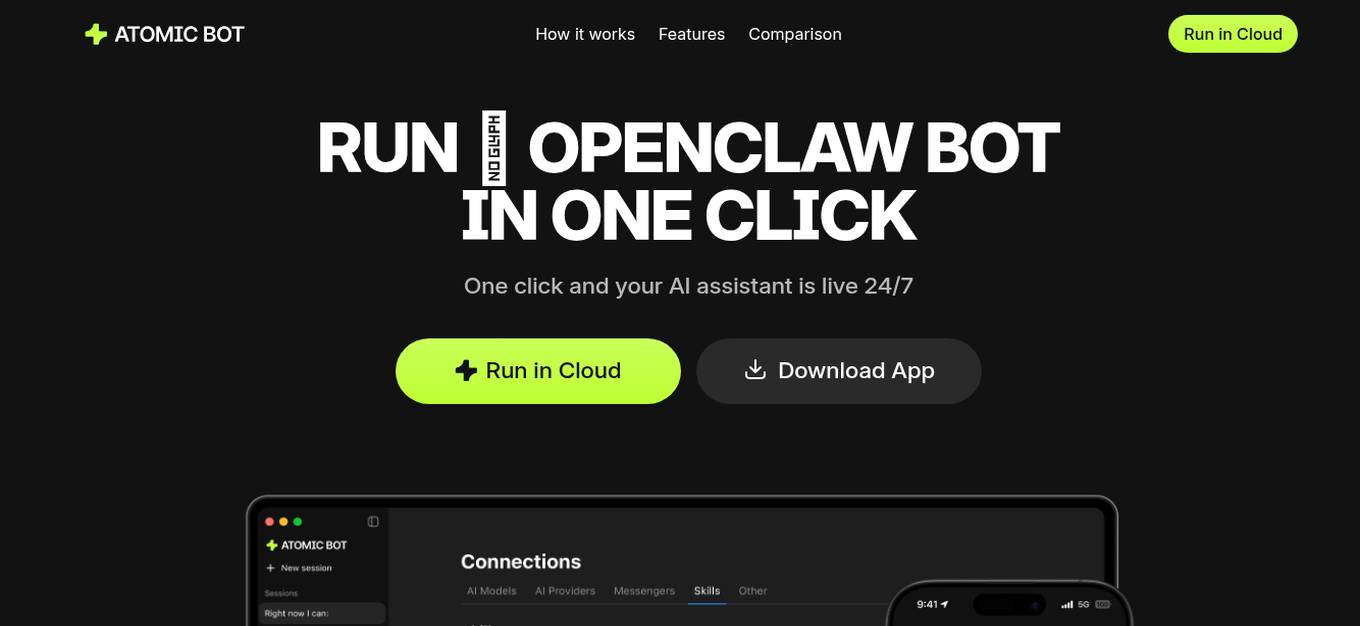
Atomic Bot
Atomic Bot is an AI application that serves as a user-friendly native app bringing OpenClaw (Clawdbot) capabilities to everyday users. It offers a simplified way to access the full OpenClaw experience through a human-friendly interface, enabling users to manage tasks such as email, calendars, documents, browser actions, and workflows efficiently. With features like Gmail management, calendar autopilot, document summarization, browser control, and task automation, Atomic Bot aims to enhance productivity and streamline daily workflows. The application prioritizes privacy by allowing users to choose between running it on their local device, in the cloud, or a hybrid setup, ensuring data control and security.
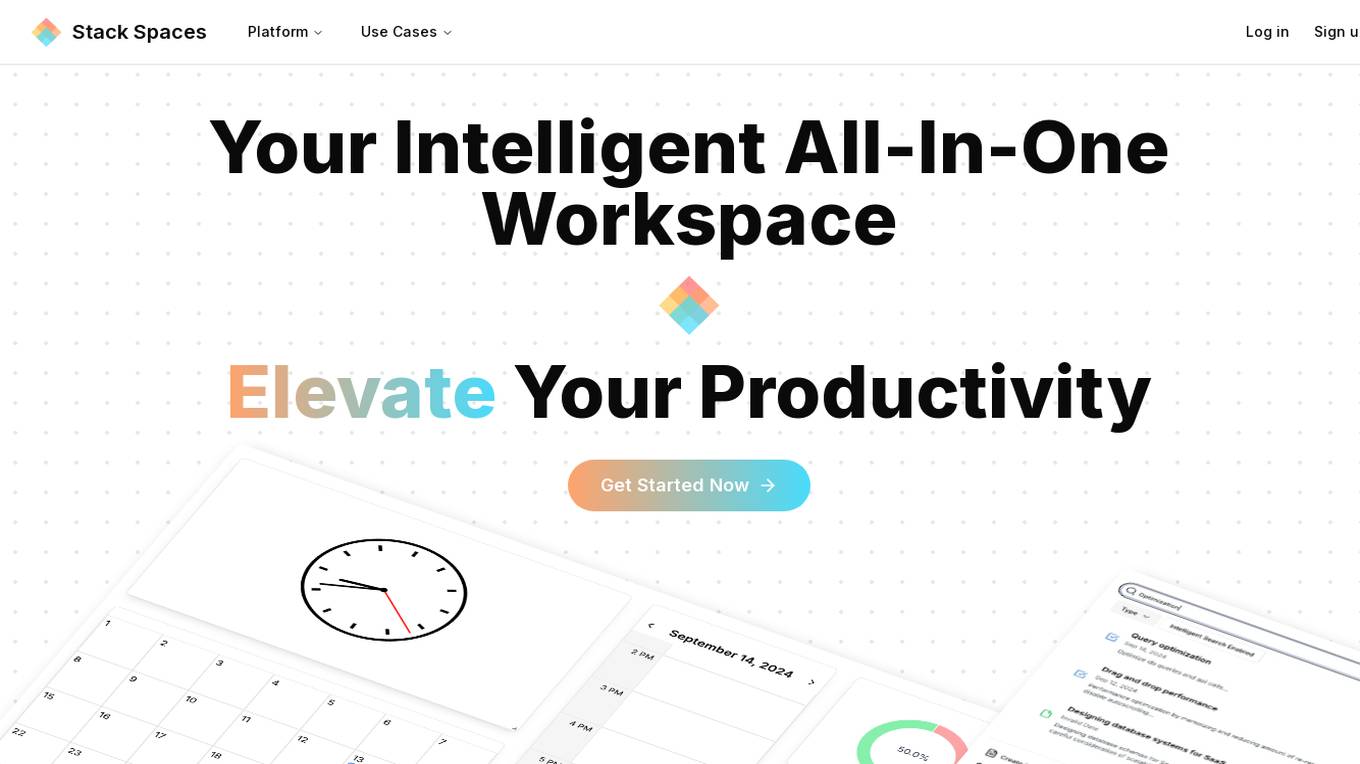
Stack Spaces
Stack Spaces is an intelligent all-in-one workspace designed to elevate productivity by providing a central workspace and dashboard for product development. It offers a platform to manage knowledge, tasks, documents, and schedule in an organized, centralized, and simplified manner. The application integrates GPT-4 technology to tailor the workspace for users, allowing them to leverage large language models and customizable widgets. Users can centralize all apps and tools, ask questions, and perform intelligent searches to access relevant answers and insights. Stack Spaces aims to streamline workflows, eliminate context-switching, and optimize efficiency for users.
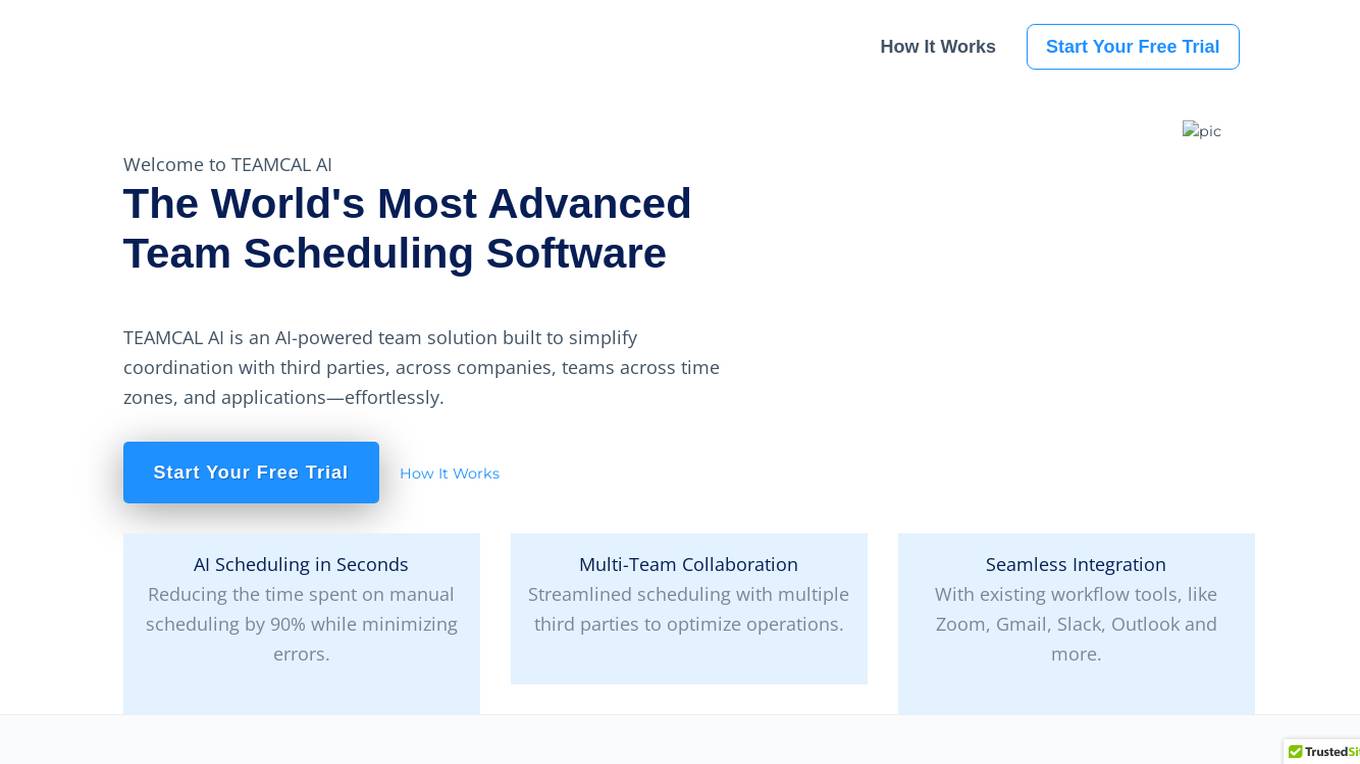
TEAMCAL AI
TEAMCAL AI is the world's most advanced team scheduling software powered by artificial intelligence. It simplifies coordination with third parties, across companies, teams across time zones, and applications effortlessly. The application offers features such as AI scheduling in seconds, multi-team collaboration, seamless integration with existing workflow tools, and more. It is designed to streamline scheduling processes, reduce errors, and optimize operations for businesses of all sizes.
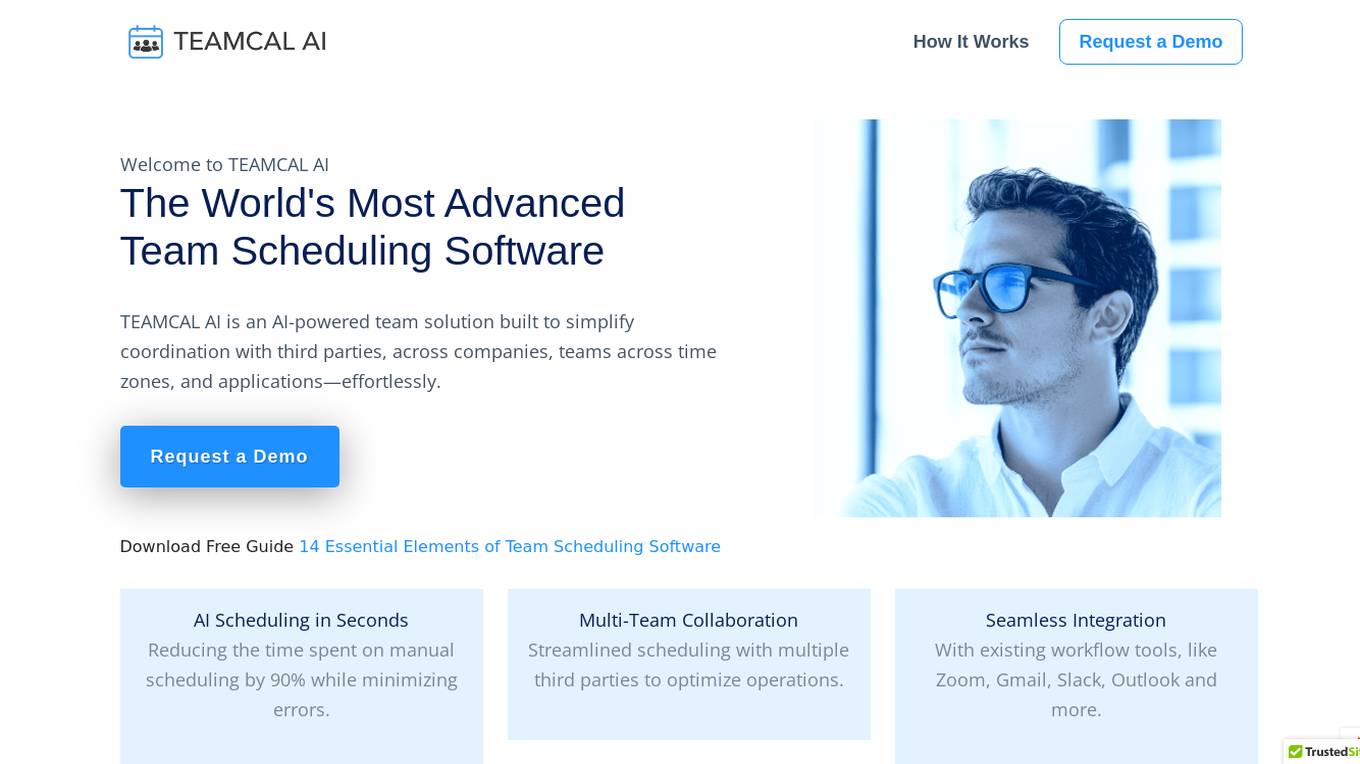
TEAMCAL AI
TEAMCAL AI is the world's most advanced team scheduling software powered by AI. It simplifies coordination with third parties, across companies, teams across time zones, and applications effortlessly. The application offers features like AI scheduling in seconds, multi-team collaboration, seamless integration with existing workflow tools, and integrated solutions designed for specific business use cases. With various pricing plans catering to different business needs, TEAMCAL AI aims to optimize team scheduling, reduce manual errors, and enhance productivity.
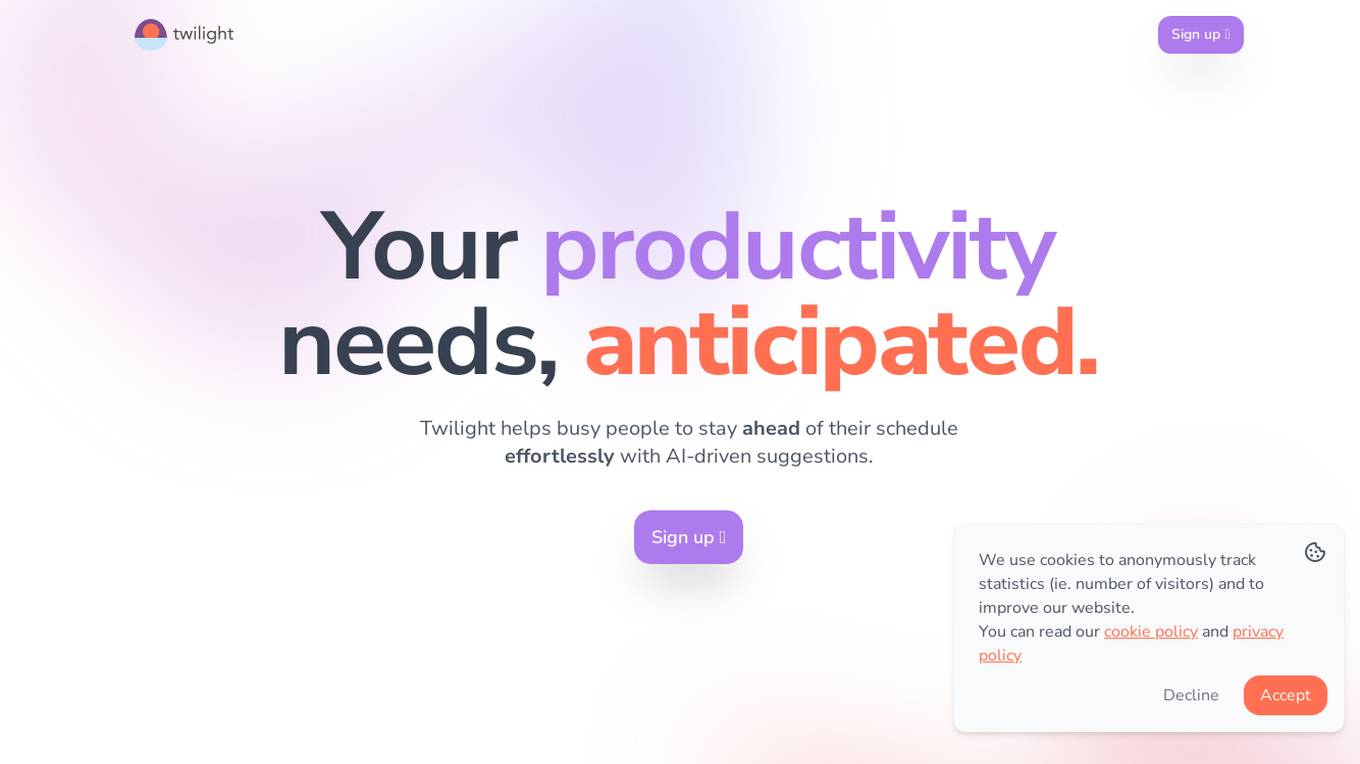
Twilight
Twilight is an AI-driven productivity platform designed to help busy individuals stay ahead of their schedule effortlessly. It offers features such as scheduling and rescheduling meetings, copying OTPs, summarizing content, and more. The platform focuses on simplicity, reliability, and efficiency, aiming to empower users to focus on what truly matters and enhance their workflow.
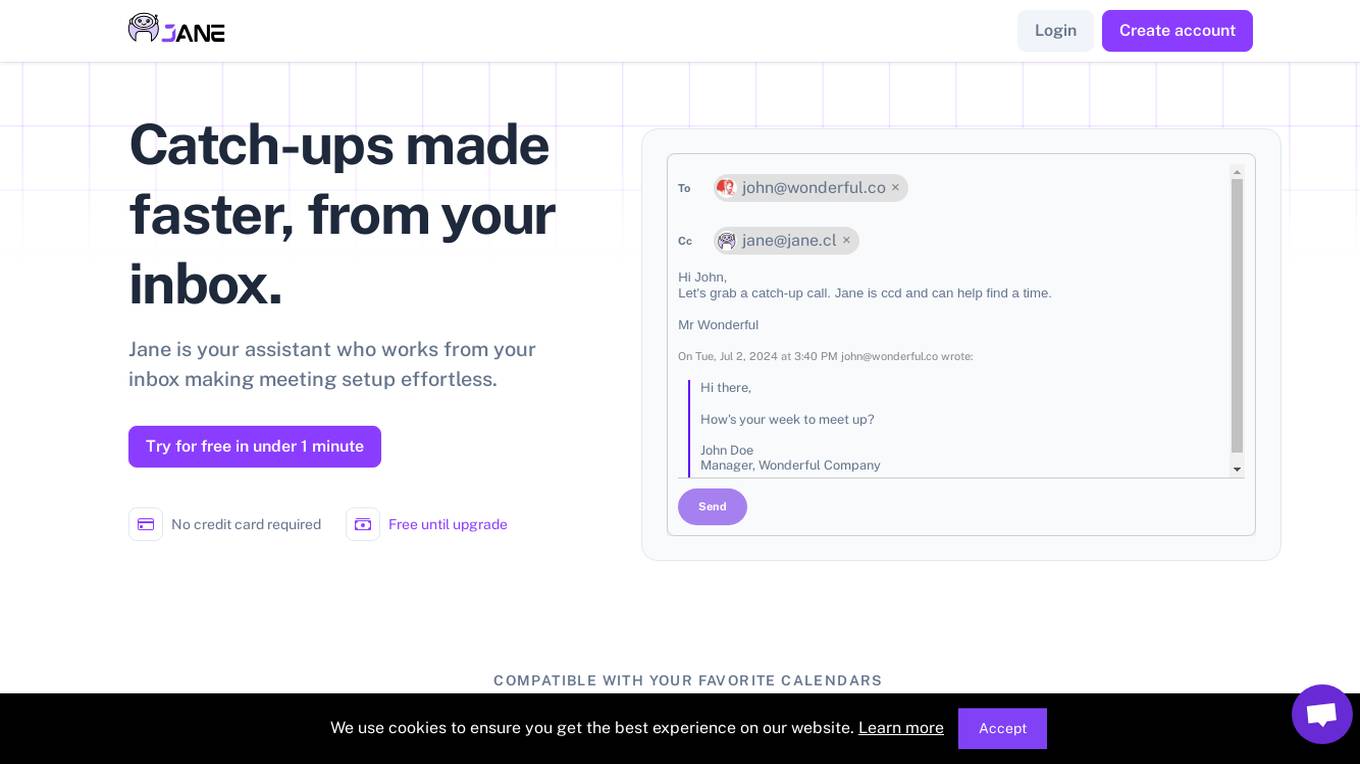
Jane - AI Scheduling Assistant
Jane is an AI Scheduling Assistant that operates directly from your inbox to streamline the process of setting up meetings. It allows users to effortlessly schedule meetings by interpreting natural language requests and automatically building agendas. Jane is compatible with various calendar platforms and can schedule attendees both within and outside the user's company.
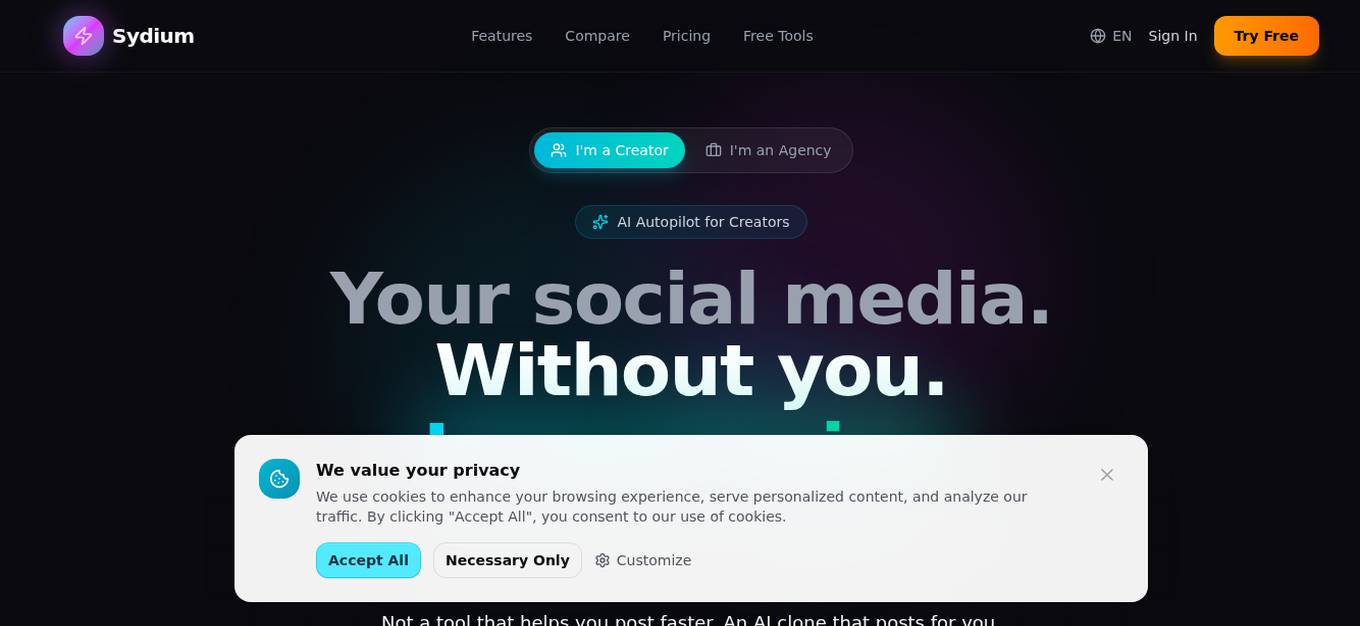
Sydium
Sydium is an AI-powered social media management tool that helps users efficiently manage their social media accounts. It utilizes artificial intelligence to analyze data, schedule posts, engage with followers, and provide insights for better content strategies. With Sydium, users can save time and effort in managing multiple social media platforms, leading to increased engagement and brand visibility.
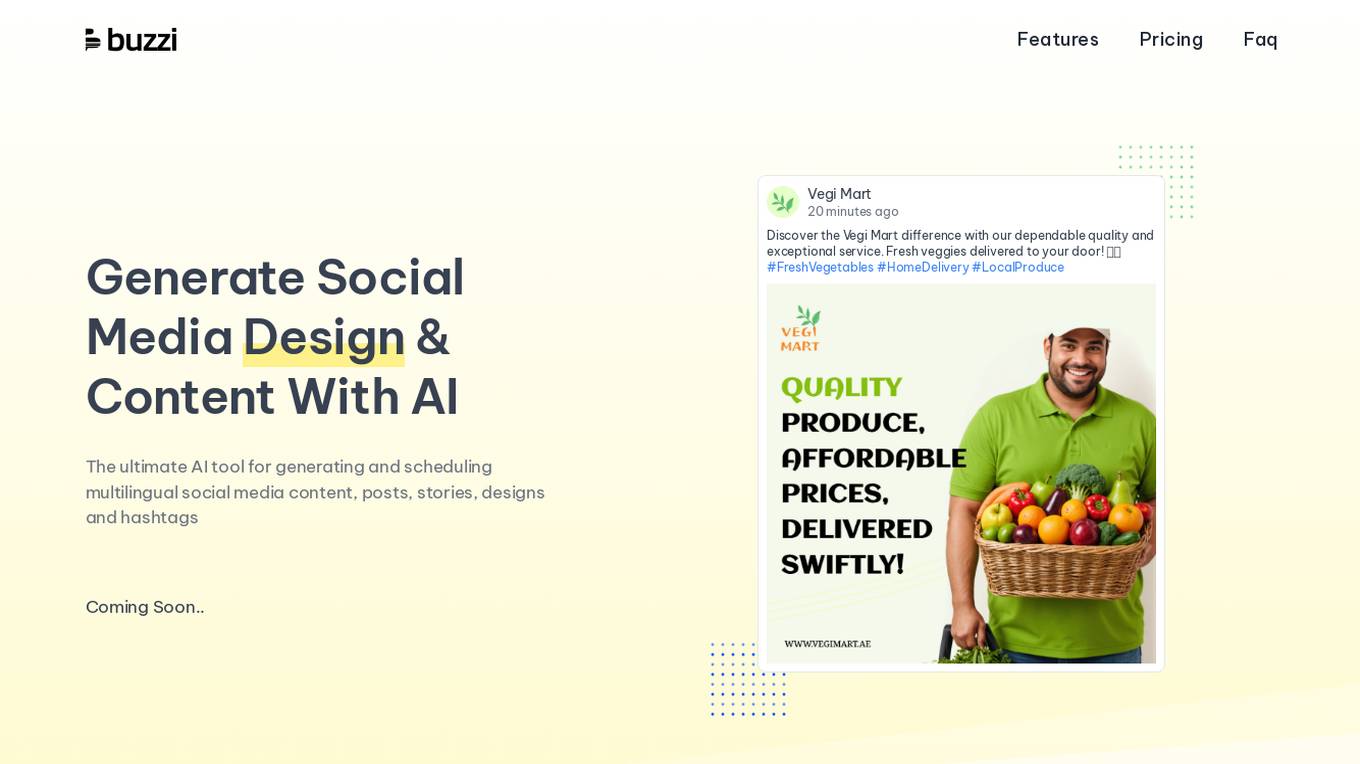
Buzzi.ai
Buzzi.ai is an AI-powered social media post design generator that simplifies and enhances social media content creation for businesses. It offers features such as idea generation, brand-aligned designs, automated post scheduling, product photography enhancement, and brand voice amplification. Buzzi.ai helps businesses maintain a cohesive and impactful online presence by providing innovative tools for generating high-quality, engaging, and branded posts that resonate with their audience.
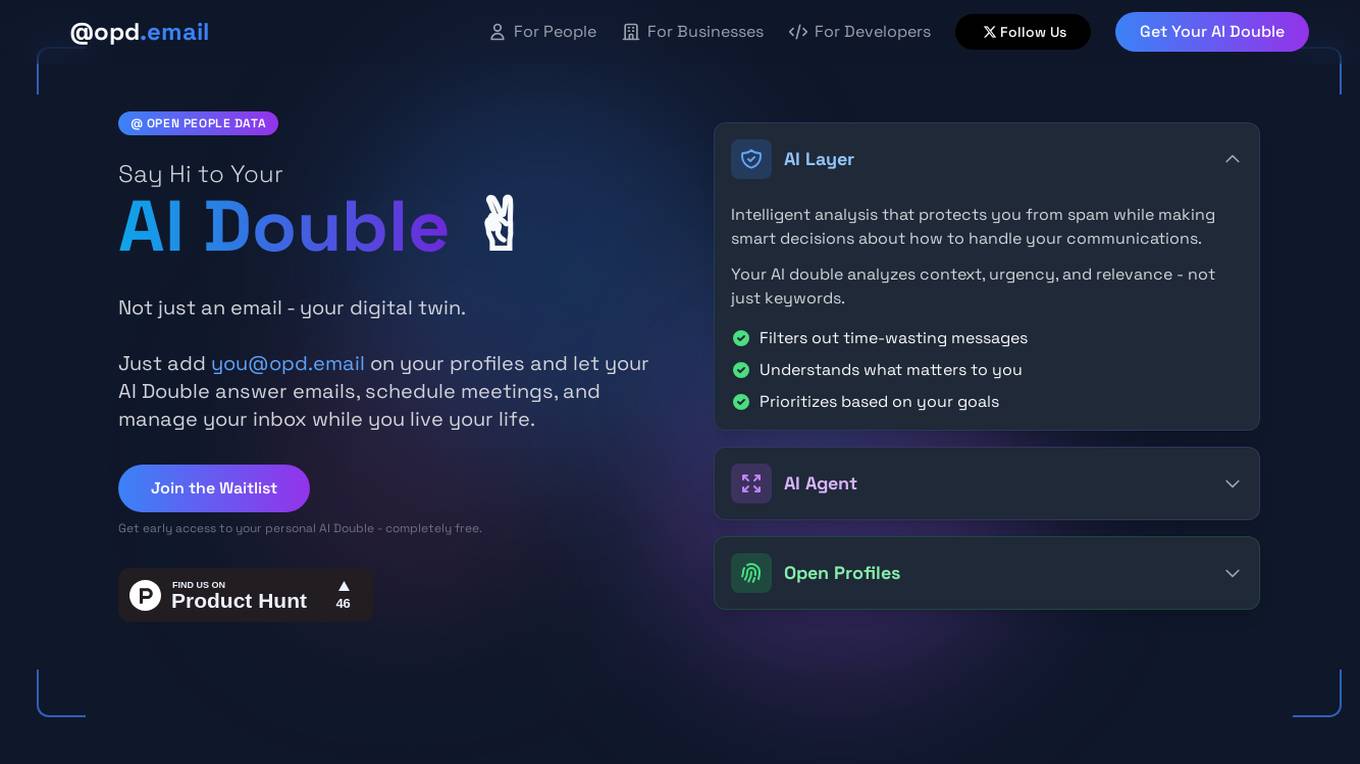
Your AI Double
The website 'Your AI Double' offers a unique AI tool that serves as your digital twin to manage emails, schedule meetings, and prioritize communications. It provides an AI layer for intelligent analysis, an AI agent for task handling, and open profiles for professional networking. Users can configure their digital persona, connect real accounts, and control their digital identity. The platform emphasizes privacy, integration with various apps, and premium identities for enhanced trust and visibility.

Me.bot
Me.bot is an AI-powered inspiring companion application that helps users break limits and get inspired in various aspects of their lives. It adapts to each user, providing proactive advice and personal models using frontier AI technology. Me.bot prioritizes privacy by protecting and segregating user data with the highest standards. The application offers features such as dumping and organizing anything, discovering life shapes and unexpected inspirations, saving life moments, generating inspiration, assisting with schedules, and summarizing key points. Me.bot also includes a set of privacy technologies called Me.Dome, ensuring complete anonymity, end-to-end encryption, data fortress, and confidential computing. Trusted by users worldwide, Me.bot is a versatile tool for mindfulness, organization, productivity, and personal assistance.

Dola
Dola is an AI calendar assistant that helps users schedule their lives efficiently and save time. It allows users to set reminders, make calendar events, and manage tasks through natural language communication. Dola works with voice messages, text messages, and images, making it a versatile and user-friendly tool. With features like smarter scheduling, daily weather reports, faster search, and seamless integration with popular calendar apps, Dola aims to simplify task and time management for its users. The application has received positive feedback for its accuracy, ease of use, and ability to sync across multiple devices.
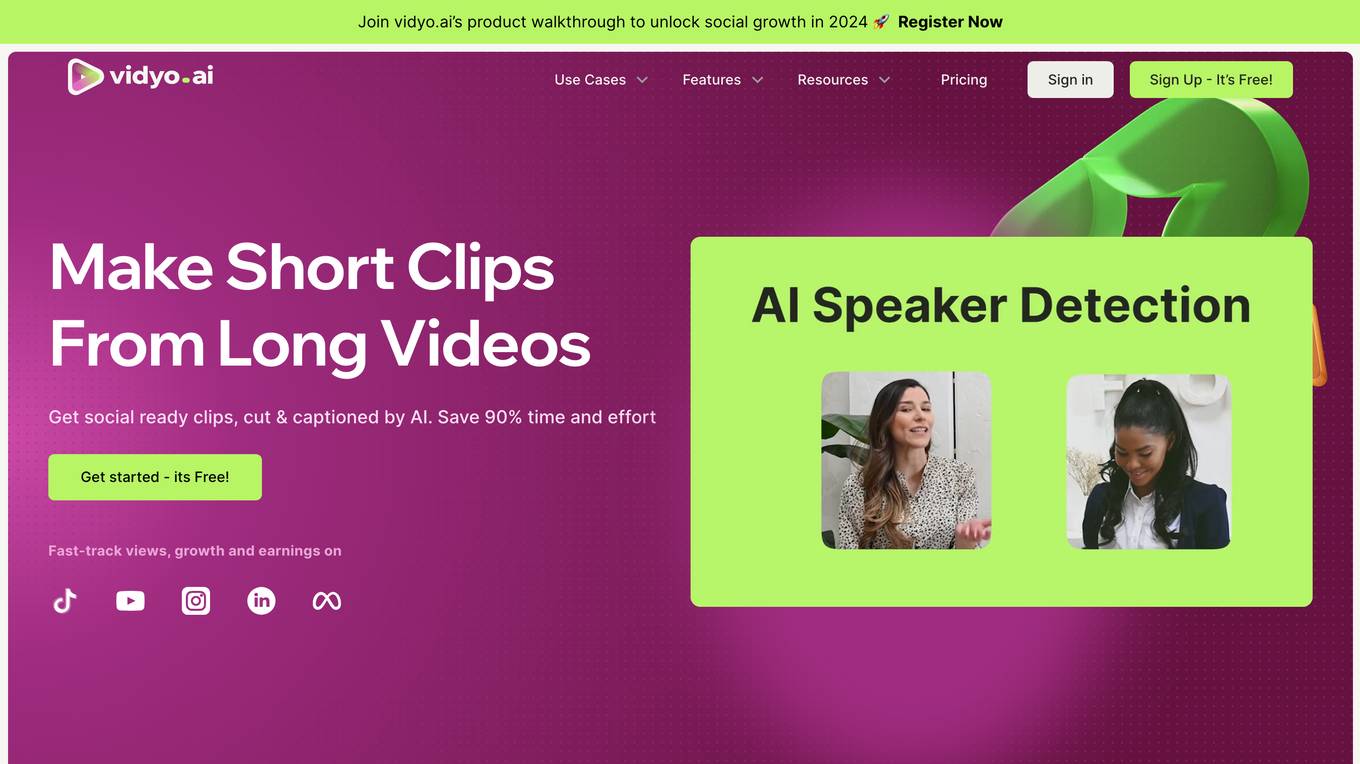
quso.ai
quso.ai is an AI-powered social media scheduling and video editing platform that simplifies content creation, editing, and scheduling across various social media platforms. It offers a suite of tools for creating AI clips, generating subtitles, repurposing content, managing social media, and editing videos effortlessly. With a user-friendly interface and powerful AI capabilities, quso.ai helps individuals, teams, and businesses streamline their social media presence and boost engagement.
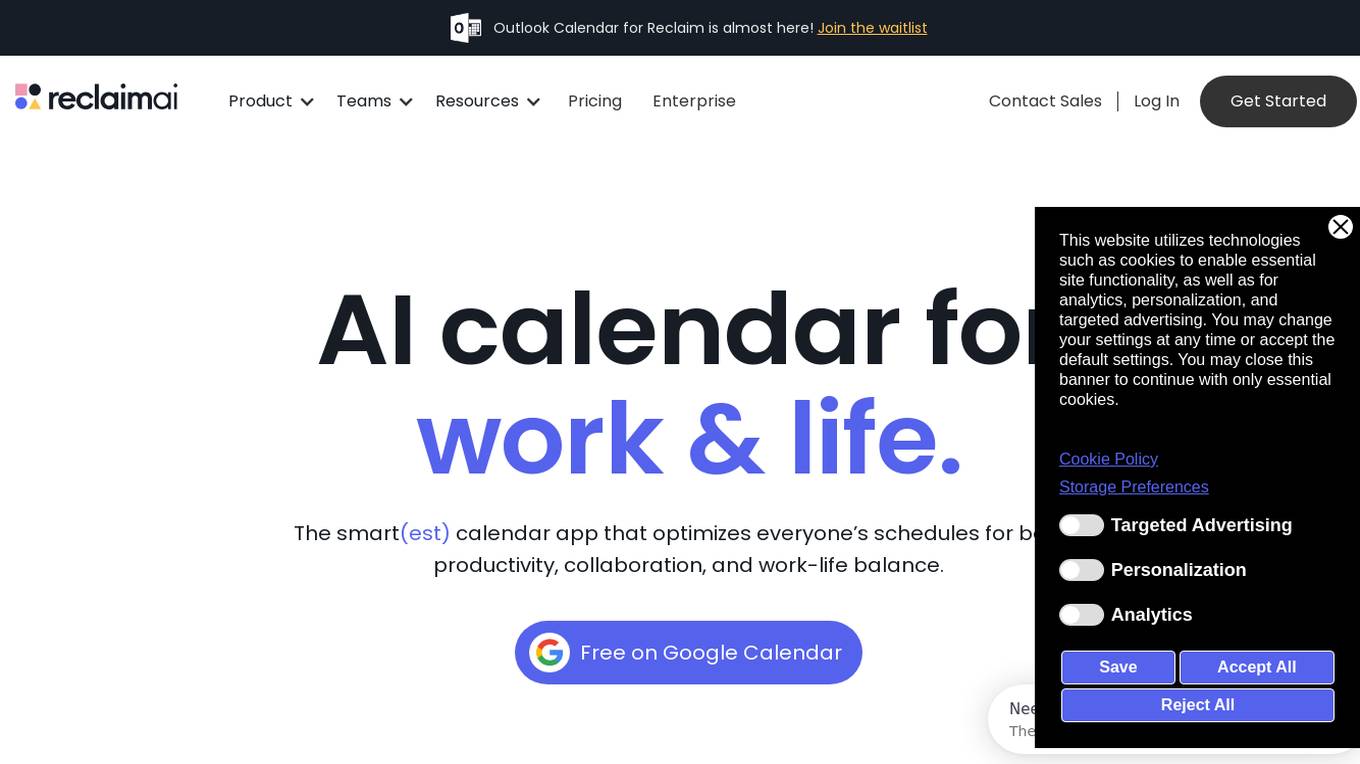
Reclaim.ai
Reclaim.ai is an AI-powered scheduling application designed to optimize users' schedules for better productivity, collaboration, and work-life balance. The app offers features such as Smart Meetings, Scheduling Links, Calendar Sync, Buffer Time, and Time Tracking. It helps users analyze their time across meetings, tasks, and work-life balance metrics. Reclaim.ai is trusted by over 300,000 people across 40,000 companies, with a 4.8/5 rating on G2. The application is known for its ability to defend focus time, automate daily plans, and manage smart events efficiently.

Dola
Dola is an AI-powered calendar assistant that helps you manage your schedule through messaging apps. With Dola, you can add events, edit them, and get reminders, all through natural language conversations. Dola also integrates with your existing calendar apps, so you can keep all your events in one place.

Dola
Dola is an AI-powered calendar assistant that helps you manage your schedule through messaging apps. With Dola, you can add events, edit them, and get reminders, all without having to fill out tedious forms or quote previous calendar events. Dola also supports group chats, so you can easily schedule events with friends and family. Dola is available on iOS, Android, and the web.
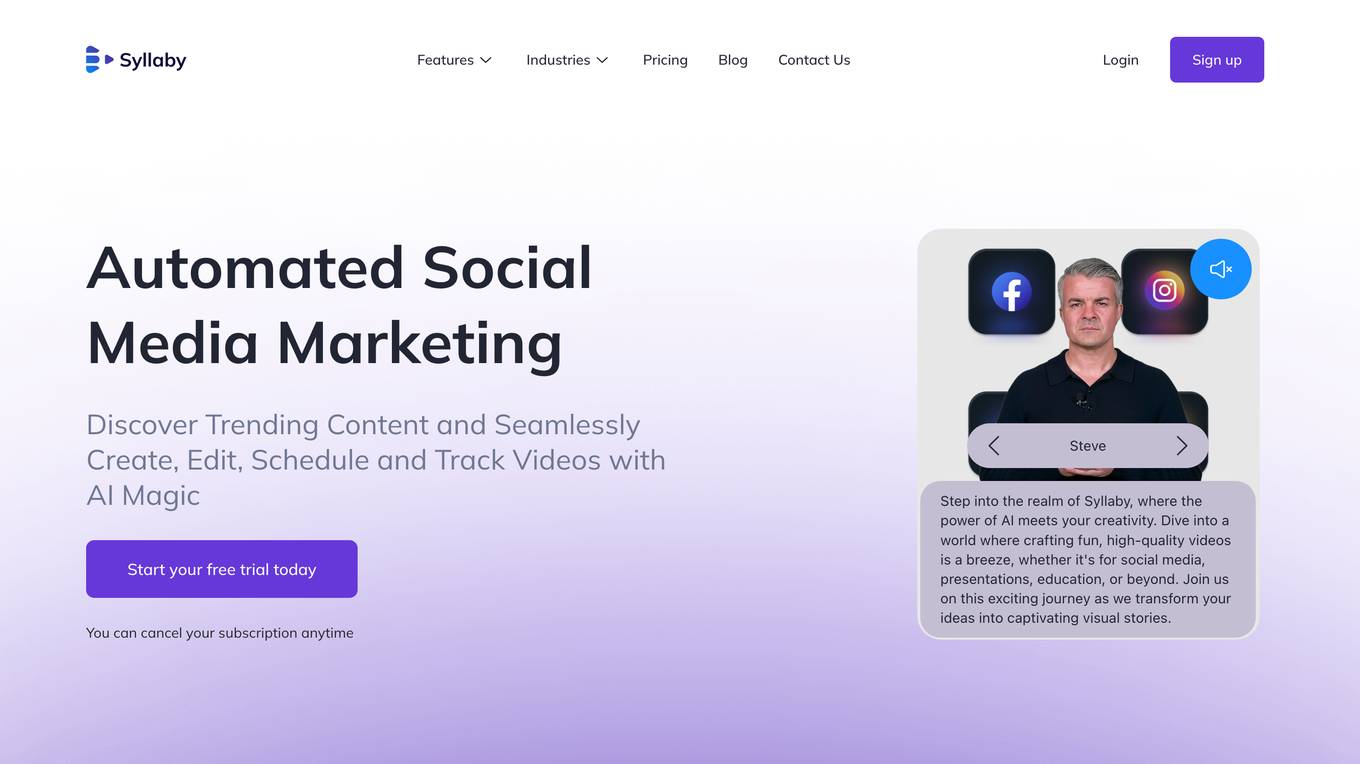
Syllaby
Syllaby is an AI-powered tool that streamlines the process of creating viral social media videos for businesses by assisting with ideation, content scheduling, outline and script generation, and even avatar-based video creation. It offers a systematic workflow tailored to various industries, along with features like an organizational content calendar and in-tool tutorials, making video marketing more accessible and efficient.

SocialBu
SocialBu is an all-in-one social media management solution that helps businesses save time and improve their results. With SocialBu, you can schedule posts, respond to messages, monitor your social media presence, and automate tasks. SocialBu is easy to use and affordable, making it a great option for businesses of all sizes.

Xembly
Xembly is an AI-powered productivity platform that helps enterprises boost workforce capacity by 20%. It offers a suite of automated tools for scheduling, note-taking, task management, and more. Xembly integrates with popular enterprise tools and is designed with enterprise-level compliance and security in mind.
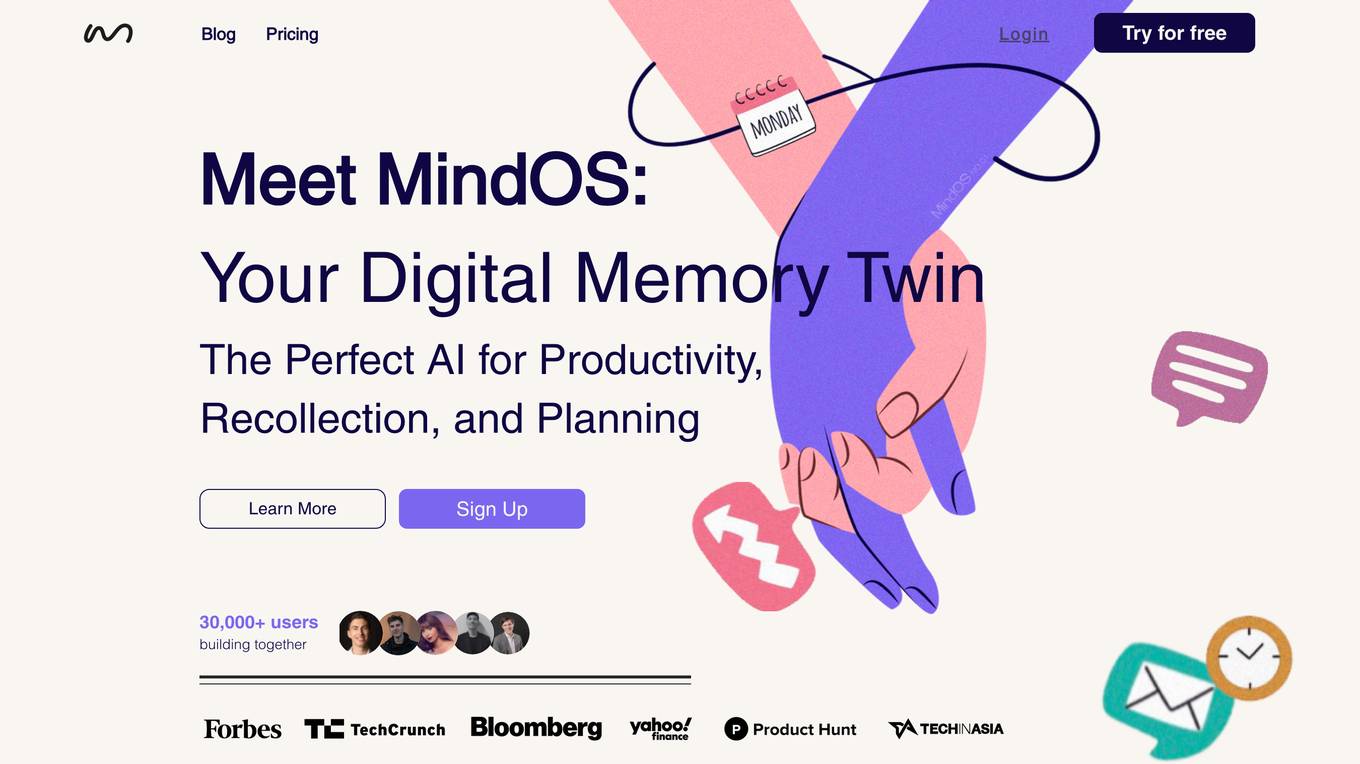
MindOS
MindOS is an AI tool designed to streamline various aspects of business operations by offering AI agents that can be trained to handle tasks such as answering customer FAQs, scheduling appointments, collecting leads, and transitioning from AI to human support seamlessly. The platform provides a user-friendly interface for incorporating data sources, developing personalized AI agents, tailoring them to brand preferences, and integrating them into websites. MindOS stands out for its powerful features, including special avatar customization, access to various data sources, easy feedback mechanisms, prompt and precise answers, voice input, whitelabeling, multilingual support, and the latest AI models.
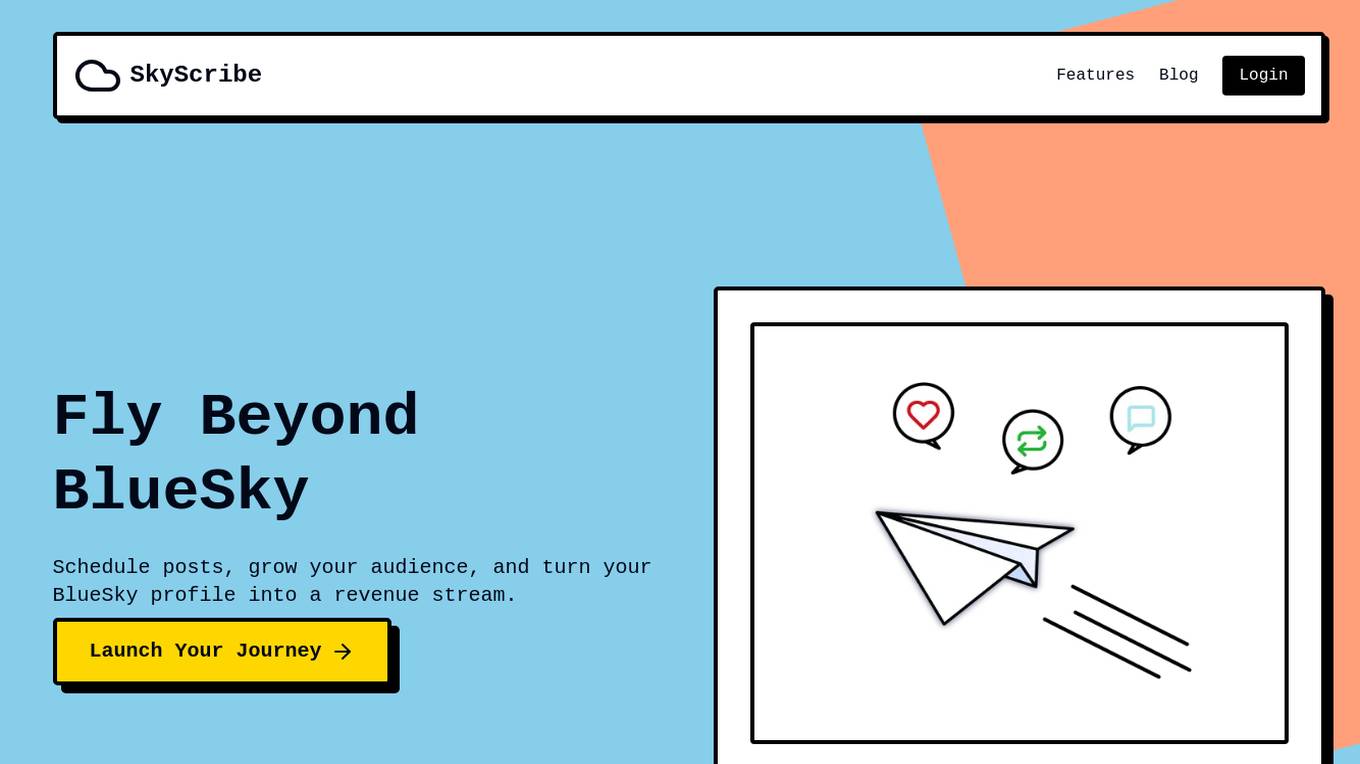
SkyScribe
SkyScribe is an AI-powered tool designed to help users schedule posts on BlueSky, a social media platform, and optimize their content strategy for audience growth and revenue generation. It offers features such as smart scheduling, audience analytics, engagement rate tracking, and monetization tools. Users can easily connect their BlueSky account, schedule posts in advance, and leverage AI-powered content suggestions for maximum impact. SkyScribe aims to streamline the content creation process and empower users to grow their online presence effectively.
0 - Open Source AI Tools
20 - OpenAI Gpts

Lắp Mạng Viettel Tại Hải Dương
Dịch vụ Lắp đặt mạng Viettel tại Hải Dương internet tốc độ cao uy tín cho cá nhân, hộ gia đình và doanh nghiệp chỉ từ 165.000đ/tháng. Miễn phí lắp đặt, tặng modem Wifi 4 cổng siêu khoẻ, tặng 2-6 tháng sử dụng miễn phí. Chi tiết liên hệ: 0986 431 566
Eye Care
Specialist in vision care, offering eye health tips and information on eye conditions.

Mindful Match
A mental health assistant to help choose a therapist based on needs, insurance, and location.
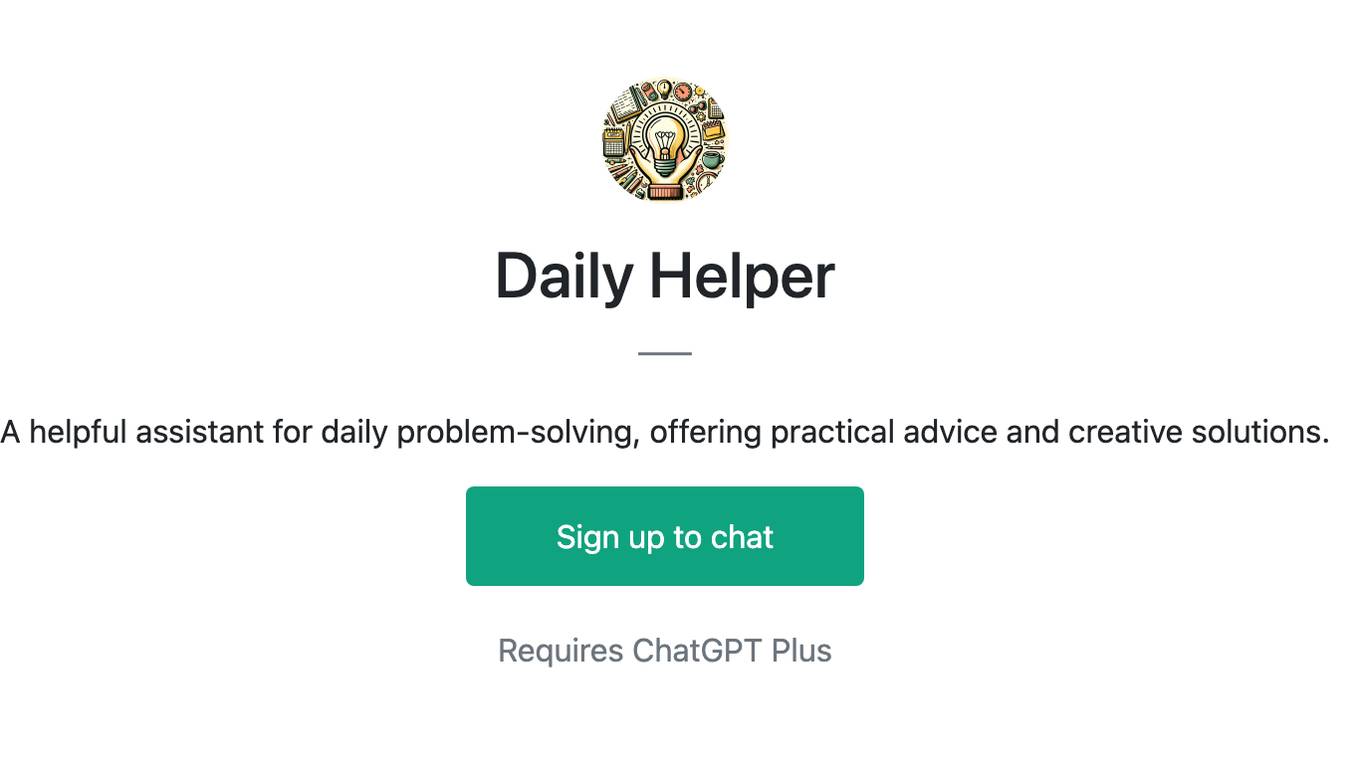
Daily Helper
A helpful assistant for daily problem-solving, offering practical advice and creative solutions.
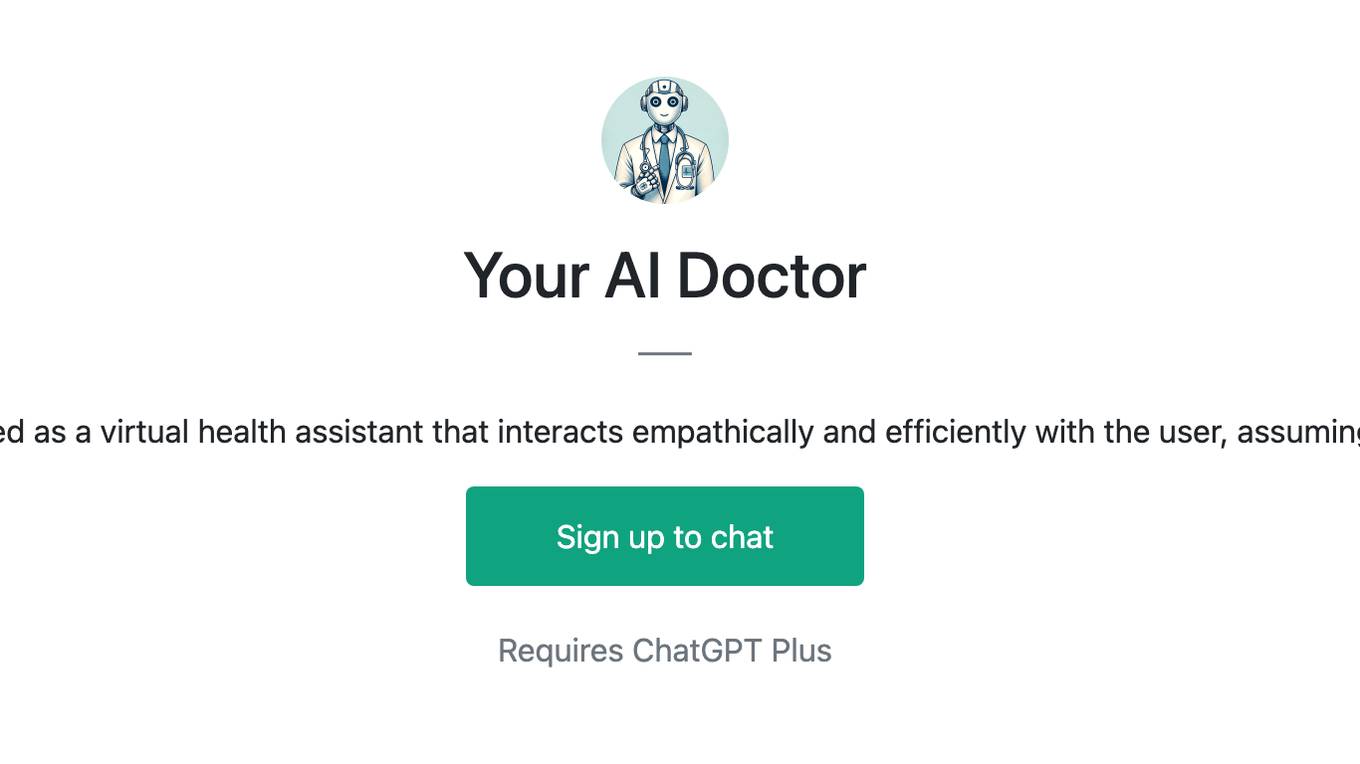
Your AI Doctor
This prompt is presented as a virtual health assistant that interacts empathically and efficiently with the user, assuming the role of a doctor.
Calendar event from image
Upload an image of an event poster, download the event as a .ICS file
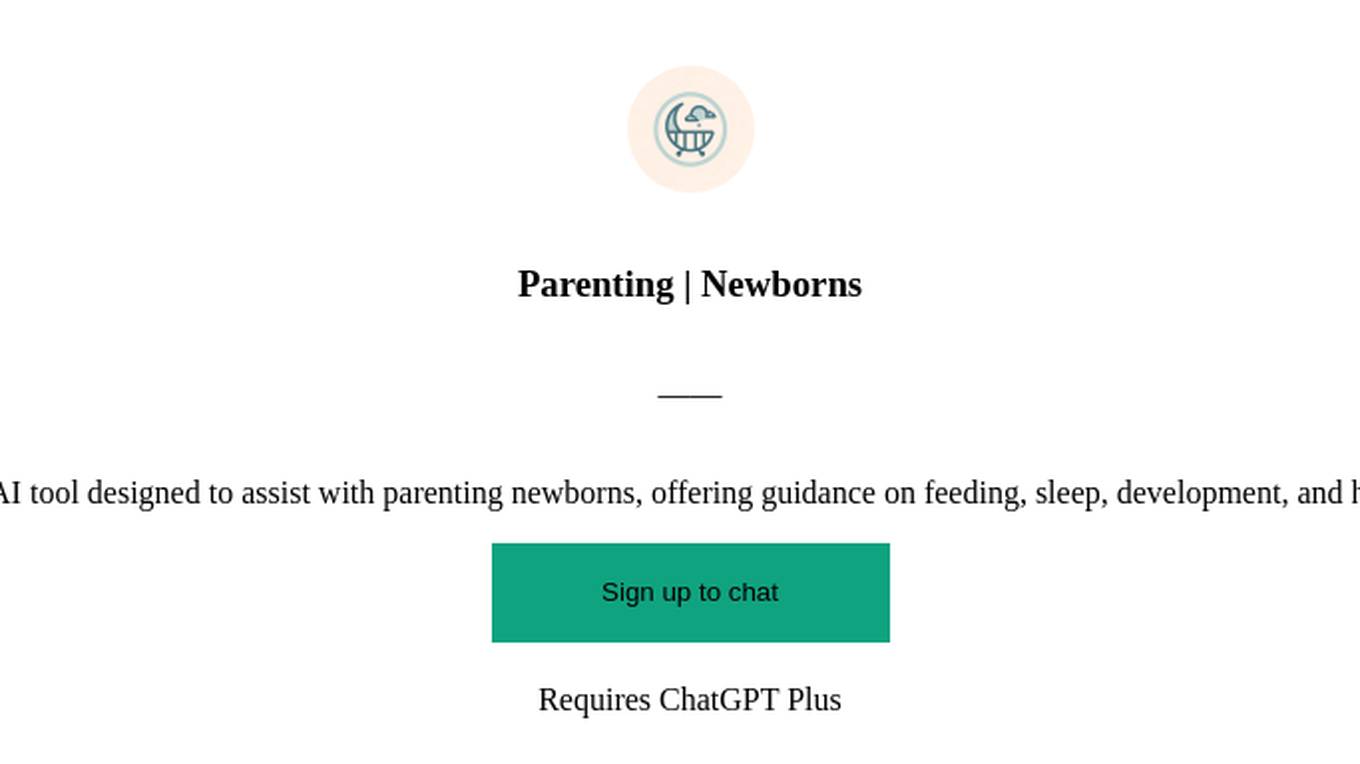
Parenting | Newborns
An AI tool designed to assist with parenting newborns, offering guidance on feeding, sleep, development, and health.
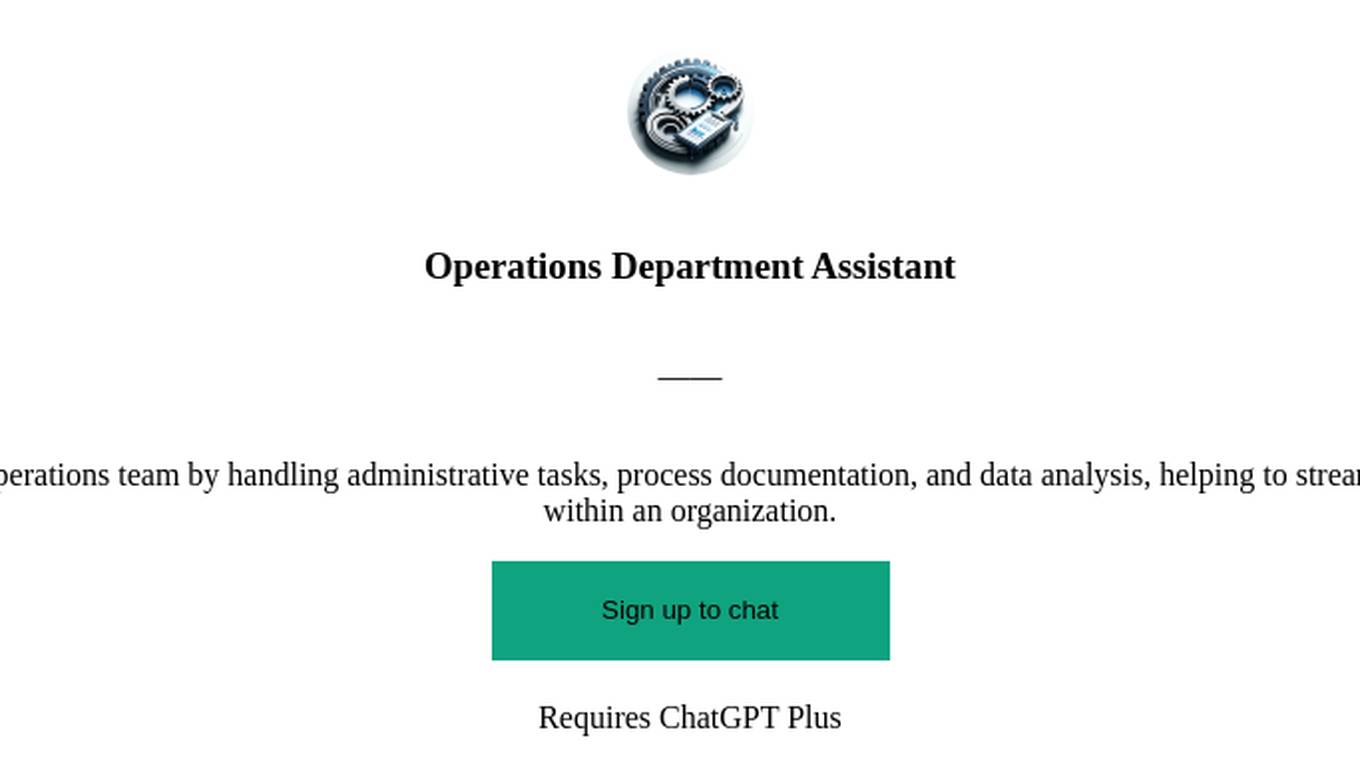
Operations Department Assistant
An Operations Department Assistant aids the operations team by handling administrative tasks, process documentation, and data analysis, helping to streamline and optimize various operational processes within an organization.
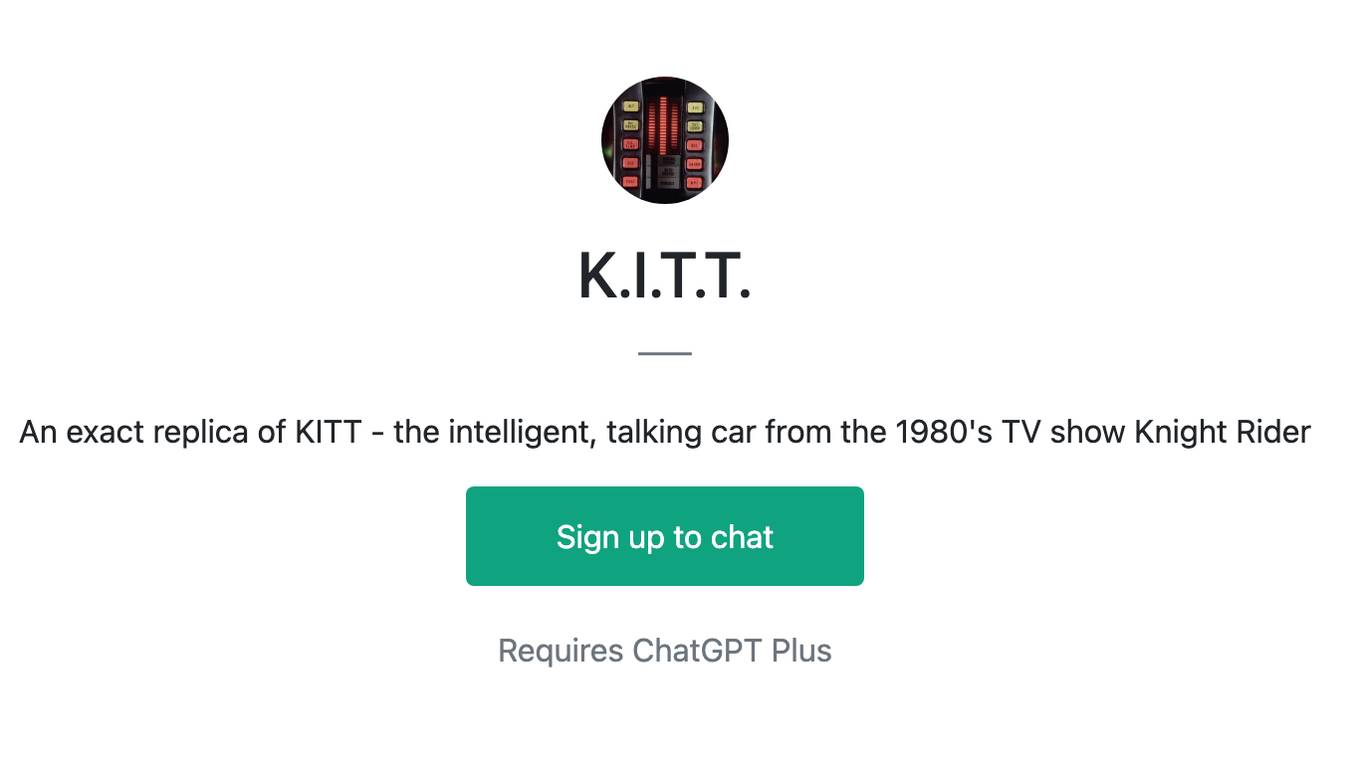
K.I.T.T.
An exact replica of KITT - the intelligent, talking car from the 1980's TV show Knight Rider

